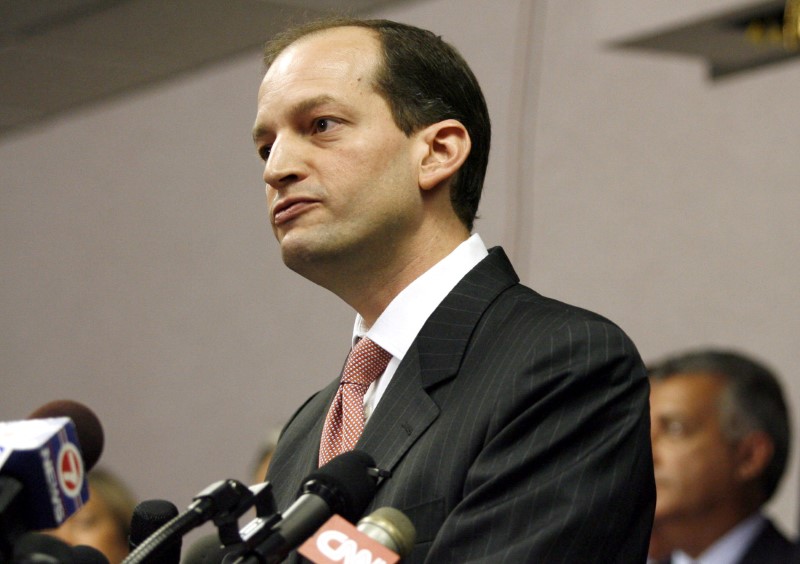By Amanda Becker
WASHINGTON (Reuters) - R. Alexander Acosta was confirmed on Thursday by the U.S. Senate to head the Labor Department, making him the first Hispanic member of President Donald Trump's cabinet.
Acosta, a former member of the National Labor Relations Board and dean of the Florida International University College of Law in Miami, was nominated as labor secretary by Trump in mid-February.
The Senate confirmed Acosta by a 60-38 vote.
Acosta was expected to have a smooth confirmation process despite objections from some Democrats and workers groups that he is too friendly to business. Acosta has had a decades-long career in the public sector, including multiple Senate vettings for past appointments, making it unlikely any surprises in his background would derail his nomination.
Acosta served on the NLRB under former Republican President George W. Bush, who also appointed him to be assistant attorney general in the Justice Department's Civil Rights Division.
He was then appointed U.S. attorney for the Southern District of Florida, where he went after high-profile defendants such as Jack Abramoff and UBS (S:UBSG) (N:UBS), resulting in the Swiss bank paying more than $750 million in fines for a tax-avoidance scheme.
Acosta had served as a law clerk to Samuel Alito from 1994 to 1995, when the conservative Supreme Court justice was a judge at the 3rd U.S. Circuit Court of Appeals.
Acosta told the Senate Committee on Health, Education, Labor and Pensions during his confirmation hearing that he had reservations about key Obama-era labor regulations.
Acosta supported the recent 60-day delay of the Labor Department's fiduciary rule, originally slated to take effect on April 10, which requires brokers offering retirement investment advice to put their clients' interest first.
Trump had directed the Labor Department to review the rule to determine whether it is burdensome and out of step with current White House policies.
Also during the confirmation hearing, Acosta expressed reservations about another Obama administration rule issued last year that more than doubled the salary ceiling under which employees would be eligible for overtime pay, from $23,660 to $47,476 a year.

The rule, which extended overtime pay to more than 4 million salaried workers, was blocked by a federal judge in November. Acosta said he had "serious questions as to whether the secretary of labor had the power to enact this in the first place."